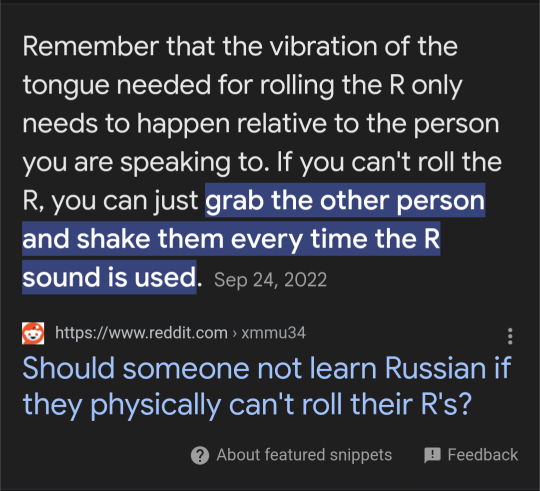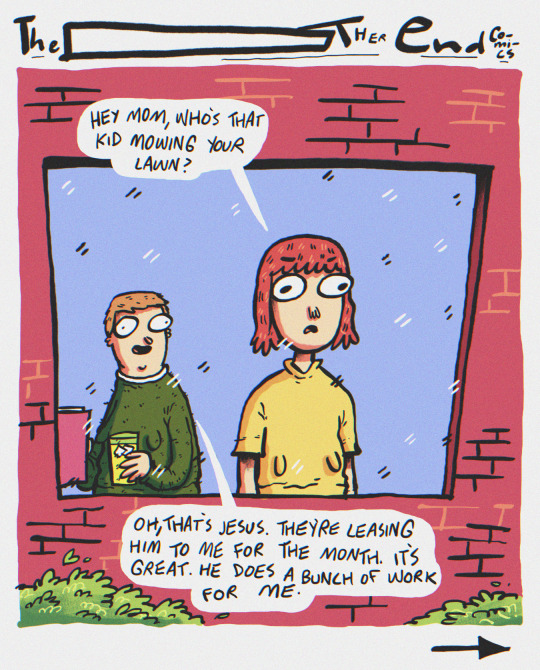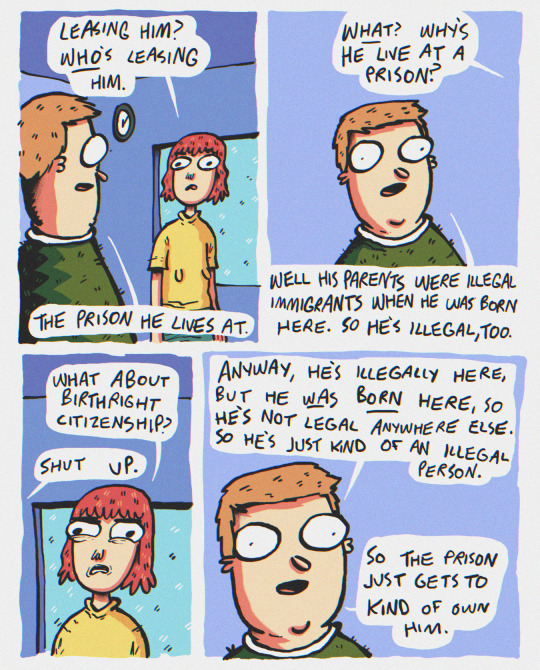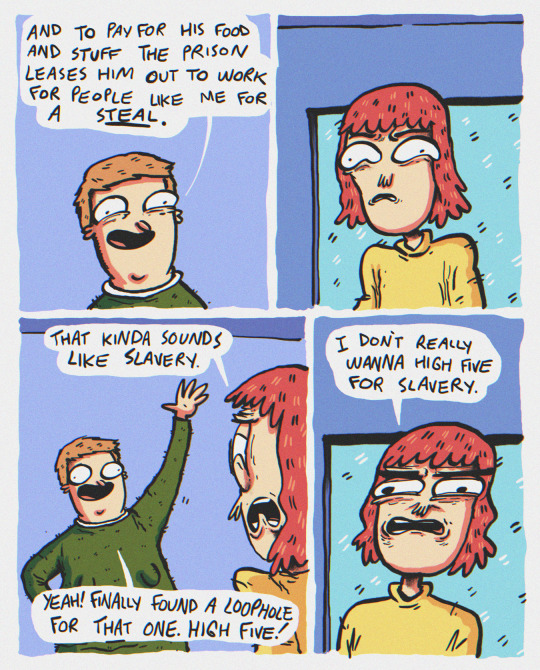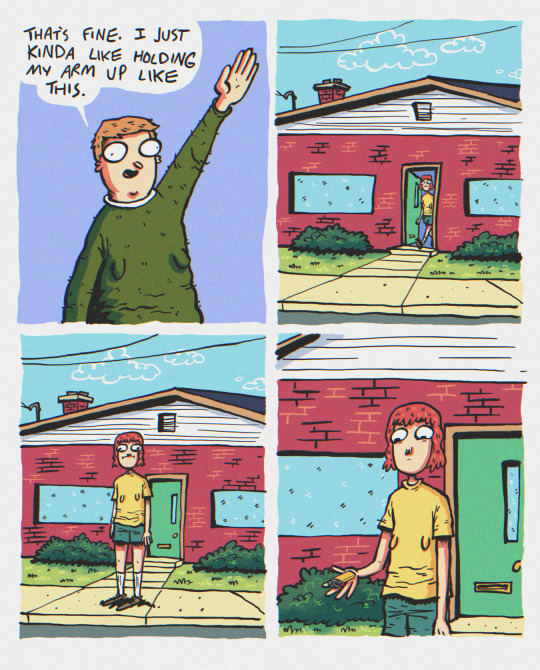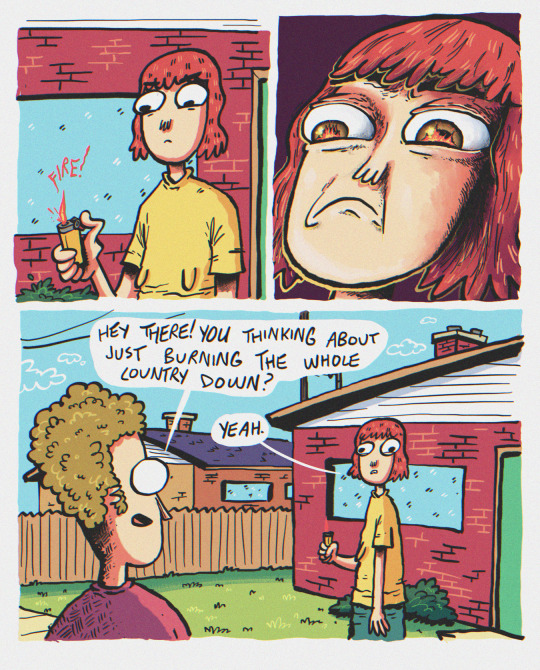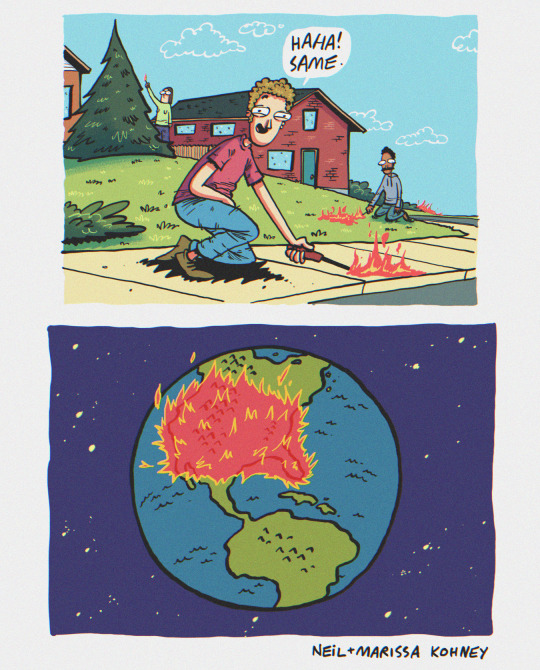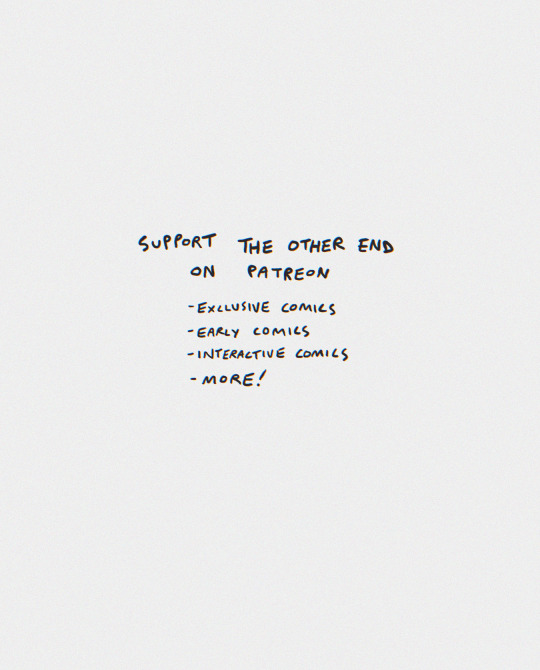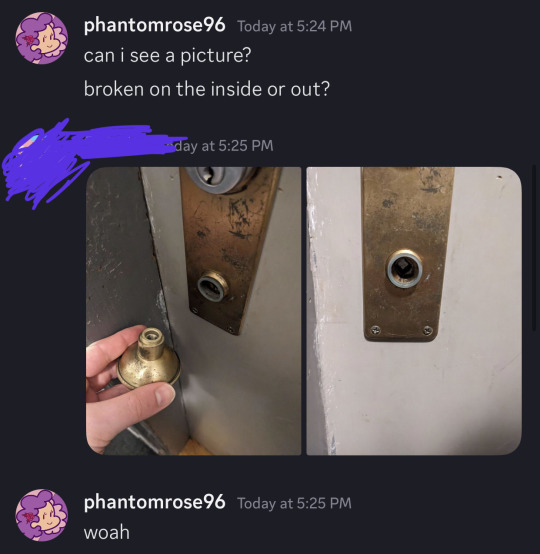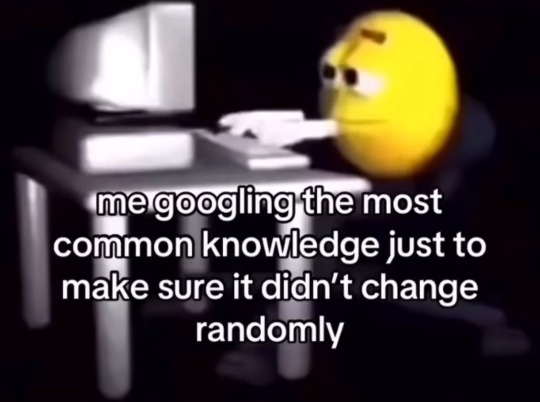Text
There's a post sitting in my flagged posts that's been there for three plus years. It's a pair of onions in a bag that looks suspiciously like a pair of fat tits. Apparently it's flagged for everyone and God i wish i could show y'all
55K notes
·
View notes
Text
the world is running out of glassblowers and yet you want to become a fucking doctor
107K notes
·
View notes
Text
Hot take but amatonormativity should be considered a feminist issue and was in fact eluded to in a lot of early feminist writing, and the fact that we don’t widely regard it as a feminist issue today indicates either a loss of knowledge or an acceptance of harmful social norms on the part of modern feminists
25K notes
·
View notes
Text
fathers casually dropping the craziest lore of their lives in the middle of a conversation
217K notes
·
View notes
Text
something has gone deeply wrong when "focusing pragmatically on issues you can influence and working to make life better for yourself and your community" is considered an unserious distraction while "endlessly exposing yourself to media about distressing situations you can't control" is considered political engagement
53K notes
·
View notes
Text
everybody is drooling for the blond guy from dungeon meshi. that guy is 100% real and I know like six of him, what you are looking for is a marine biologist
1. spends a long amount of time doing something weird far away from society
2. will not stop talking about their animal
3. has definitely eaten their animal and has strong opinions on how to cook it best
51K notes
·
View notes
Text
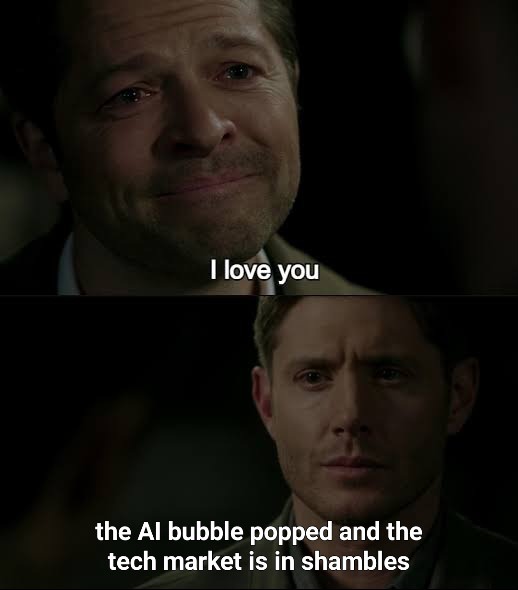

So on the 27th DeepSeek R1 dropped (a chinese version of ChatGPT that is open source, free and beats GPT's 200 dollar subscription, using less resources and less money) and the tech market just had a loss of $1,2 Trillion.
Source

81K notes
·
View notes
Text
grief is so crazy like what if i forget what her laugh sounds like. does she know i loved her. i miss her so much. i catch myself doing things she used to do. i wish i could call her. i miss her so much. i do a crossword puzzle. i cry while washing the dishes. does she know i loved her? my heart feels like a hummingbird. i miss her so much. what if i forget what her laugh sounds like. what if i forget.
46K notes
·
View notes
Text
I think it's so funny how we bred JOBS into dogs. I have two shih tzus and they were bred to be lap dogs. All they care about is looking cute and cuddling with people. Meanwhile my grandma has a border collie and that dog needs to feel so useful all the time, he acts like he will pass away if he doesn't have a job to do constantly
180K notes
·
View notes
